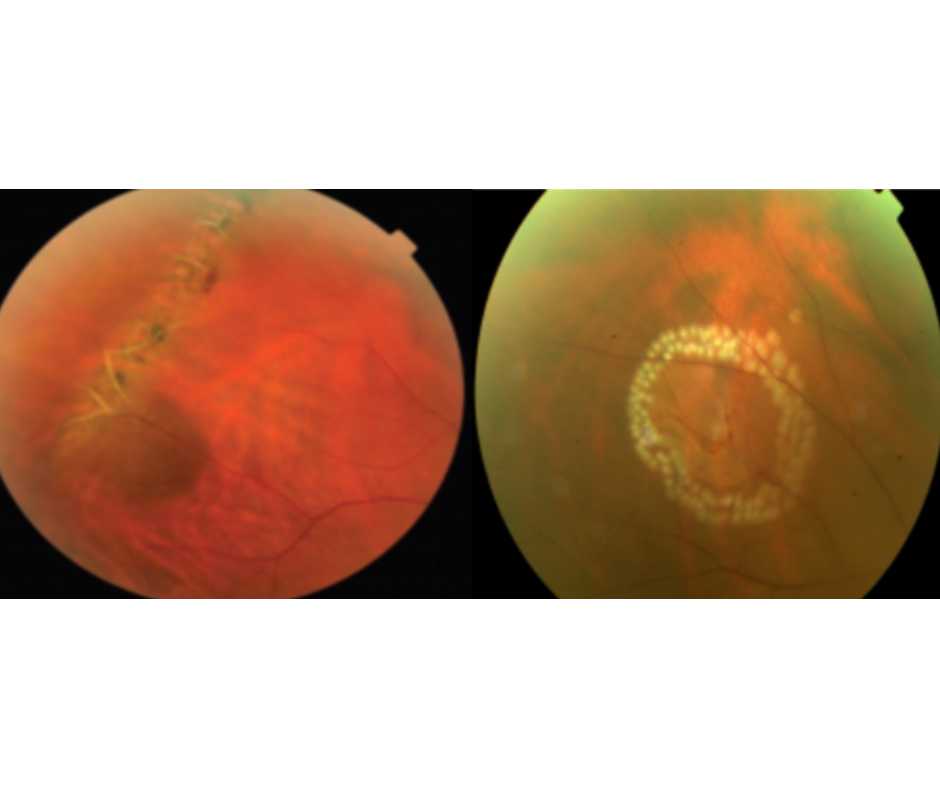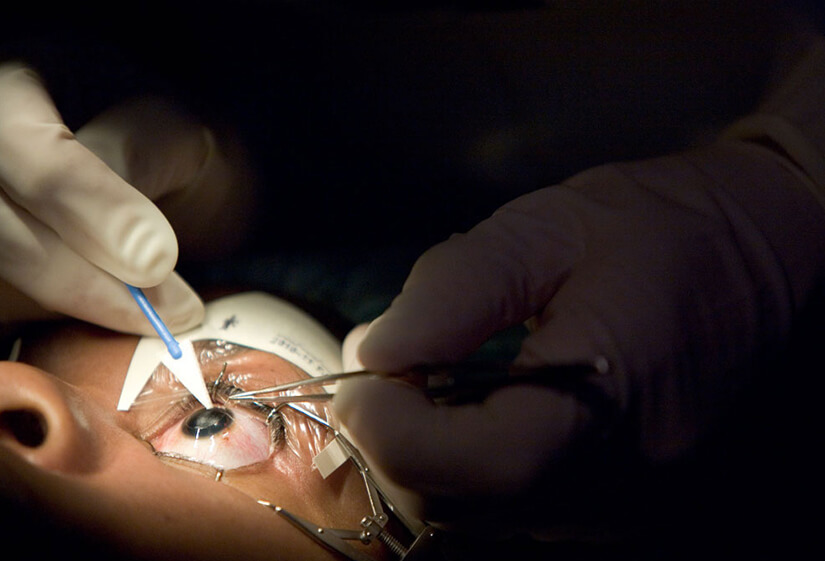Introduction:
In today’s fast-paced world, clear vision is more important than ever. For those with refractive errors like nearsightedness, farsightedness, or astigmatism, laser eye treatment offers a life-changing solution. If you’re considering this procedure, understanding the cost of laser treatment for eye is essential, along with the process and benefits it offers. This guide covers all the key details, helping you make a well-informed decision about laser vision correction.
What is LASIK Eye Surgery?
LASIK (Laser-Assisted In Situ Keratomileusis) is a highly popular surgical procedure used to correct refractive errors. LASIK enhances vision by reshaping the cornea, allowing light to focus accurately on the retina, eliminating the dependence on glasses or contact lenses.
The surgery uses a laser to create a thin flap in the cornea, allowing precise reshaping of the underlying tissue.This minimally invasive procedure is fast, virtually painless, and delivers impressive results.
LASIK works by addressing three major refractive errors:
- Nearsightedness (Myopia): Difficulty in seeing distant objects clearly due to the cornea being too steep or the eye being too long.
- Farsightedness (Hyperopia): Difficulty focusing on close objects caused by a flat cornea or a shorter-than-average eyeball.
- Astigmatism: A condition causing blurred or distorted vision resulting from an irregularly shaped cornea.

What is the Cost of Laser Eye treatment in India?
In India, LASIK surgery is more affordable compared to many Western countries, with costs ranging between ₹35,000 and ₹1,00,000. The variation depends on several factors such as technology, surgeon expertise, and hospital infrastructure. Despite its affordability, the quality of care in India’s leading eye clinics is on par with international standards.
Factors that impact pricing include:
- Technology: Advanced techniques like Contoura Vision or SMILE increase costs.
- Geographic Location: Costs are generally higher in metropolitan areas.
- Clinic Reputation: Clinics with state-of-the-art equipment and experienced surgeons may charge more.
- Pre-Operative Tests: Advanced diagnostic tests can add to the overall cost.
What Are the Factors That Influence the Price of Laser Eye treatment in India?
- Technology Used: Advanced techniques like bladeless LASIK and SMILE are more expensive than conventional methods.
- Surgeon Expertise: Highly experienced surgeons may charge a premium for their skills.
- Location: Surgery costs tend to be higher in metropolitan cities due to increased operational costs.
- Clinic Reputation: Renowned clinics with state-of-the-art facilities often charge more.
- Type of Surgery: The specific LASIK method chosen significantly affects the overall cost.
- Pre- and Post-Operative Care: Comprehensive care packages may add to the expense.
Additional Costs to Consider:
- Consultation Fees: The initial consultation typically ranges from ₹1,000 to ₹5,000.
- Follow-Up Appointments: Post-surgery check-ups may be charged separately.
- Medication: Prescription eye drops and pain relievers are usually not included in the surgery cost.
What is the Cost of LASIK Eye treatment in Bangalore?
In Bangalore, a city known for its advanced healthcare facilities, LASIK surgery costs range between ₹50,000 and ₹1,20,000. The higher end reflects premium services and advanced technologies offered by some of the city’s leading eye hospitals.
Prominent hospitals in Bangalore that offer LASIK surgery include:
- Narayana Nethralaya
- Vijayanethralaya Super Specialist eye Hospital
- Manipal Hospital
- Vasan Eye Care
Factors That Influence the Price of Laser Eye treatment in Bangalore
- Clinic Location: Prime locations within the city typically have higher charges.
- Surgeon’s Experience: Surgeons with extensive experience often charge higher fees due to their expertise and the trust they’ve built over years of practice.
- Technology: Clinics offering cutting-edge solutions like Contoura Vision or SMILE often charge more.
- Additional Services: Comprehensive care packages, including follow-ups and medication, can increase costs.
- Specialized Equipment: Premium diagnostic and surgical tools add to the overall expenses.
Types of LASIK/Laser Eye Surgery with Cost
- Conventional LASIK:
- Most common and affordable option.
- Costs: ₹35,000 – ₹60,000.
- Custom LASIK:
- Tailored for individual eye needs using wavefront technology.
- Costs: ₹45,000 – ₹70,000.
- Bladeless LASIK (Femto LASIK):
- Utilizes femtosecond lasers for flap creation.
- Costs: ₹60,000 – ₹85,000.
- SMILE (Small Incision Lenticule Extraction):
- Minimally invasive and ideal for high myopia.
- Costs: ₹75,000 – ₹1,20,000.
- Contoura Vision LASIK:
- Offers precise corrections for corneal irregularities.
- Costs: ₹80,000 – ₹1,50,000.
Is LASIK Eye treatment Covered by Health Insurance?
In most cases, LASIK is considered an elective cosmetic procedure and is not covered by health insurance. However, certain policies may provide coverage if the surgery is deemed medically necessary. Always consult with your insurance provider to understand your options.
LASIK vs. SMILE – Which Is Betterfor eye treatment?
Choosing between LASIK and SMILE depends on individual needs:
- LASIK: Best for a wide range of refractive errors with quicker recovery times.
- SMILE: Minimally invasive, suitable for high myopia, with reduced chances of dry eyes.
Consulting an experienced ophthalmologist can help you determine the best option for your vision correction needs.

How Is LASIK Surgery Performed?
The LASIK procedure involves the following steps:
- Preparation: Before the procedure, anesthetic eye drops are applied to numb the eye, ensuring the patient remains comfortable throughout.
- Flap Creation: During flap creation, a femtosecond laser is used to precisely form a thin, hinged flap on the cornea, allowing access to the underlying tissue.
- Reshaping: In the reshaping step, an excimer laser carefully sculpts the corneal tissue, adjusting its curvature to correct refractive errors and improve vision.
- Flap Replacement: The flap is repositioned, and the eye begins to heal naturally.
Is LASIK Surgery Painful?
LASIK is generally pain-free.Patients might experience a mild sensation of pressure on the eye during the procedure, but it is typically brief and painless., but numbing drops ensure there is no discomfort. Mild irritation post-surgery is normal and subsides within a few hours.
Is LASIK a Blade-less Procedure?
Yes, modern LASIK procedures like Femto LASIK are entirely bladeless. They use femtosecond lasers for creating corneal flaps, ensuring precision and safety.
How Long Does the Procedure Take?
The entire LASIK procedure is quick, usually taking around 15 minutes to complete both eyes. However, the entire visit, including preparation and post-procedure observation, may last around 2 hours.
What Happens If You Blink During the LASIK Procedure?
Advanced LASIK systems are equipped with eye-tracking technology that adjusts for any involuntary eye movements, ensuring safety and precision even if you blink.
Complications in Laser Surgery May Only Arise Due to the Following Reasons:
- Pre-existing Eye Conditions: Issues like severe dry eyes or corneal thinning.
- Inexperienced Surgeon: Lack of expertise can increase risks.
- Improper Post-Operative Care: Not following the prescribed care routine.
- Underlying Health Conditions: Diabetes or autoimmune diseases may impact healing.
Conclusion
LASIK eye surgery is a life-changing procedure that offers freedom from glasses and contact lenses. With advancements in technology and skilled surgeons available, India, especially cities like Bangalore, has become a hub for safe and affordable LASIK procedures. By understanding the costs, options, and process, you can make an informed decision to achieve clear, hassle-free vision.
Author Details:
Dr. Sushruth Appajigowda holds a prominent position as a Cornea, Cataract, Glaucoma, and LASIK Surgeon in Bangalore. He serves as the chief Cataract and Refractive surgeon at Vijaya Nethralaya Eye Hospital, Nagarbhavi Bangalore. Renowned as one of the finest LASIK surgeons nationwide, he brings with him over 12+ years of experience across multiple LASIK platforms, including ZEISS, ALCON, SCHWIND, AMO, and Bausch and Lomb. Having successfully conducted over 5000 LASIK procedures, Dr. Sushruth holds the title of a Certified Refractive Surgeon and a Fellow of the All India Collegium Of Ophthalmology. Furthermore, he stands as a distinguished speaker at various National and International Forums, using his expertise to guide you in selecting the most suitable procedure based on your health requirements.

http://vijayanethralaya.com/link-in-bio/
FAQ
Benefits of LASIK Surgery?
- Immediate improvement in vision.
- Freedom from glasses or contact lenses.
- Quick recovery time.
- Long-lasting results.
- Enhanced quality of life.
Do LASIK Results Last for a Lifetime?
Yes, LASIK results are permanent for most individuals. However, natural aging or other eye conditions may still affect vision over time.
How Long Does It Take for Recovery?
Most patients notice a remarkable improvement in their vision within 24 hours after the procedure. Full recovery may take 2-3 weeks.
Is Laser Eye Operation Good for Cataracts?
No, LASIK is not designed to treat cataracts. Separate surgical procedures are available for cataract removal.
Who Is Fit for LASIK Eye Surgery?
- Individuals aged 18-40 years with stable vision.
- Those with mild to moderate refractive errors.
- People without significant eye or health issues.
By choosing the right surgeon and understanding the procedure, LASIK can transform your vision and your life.












